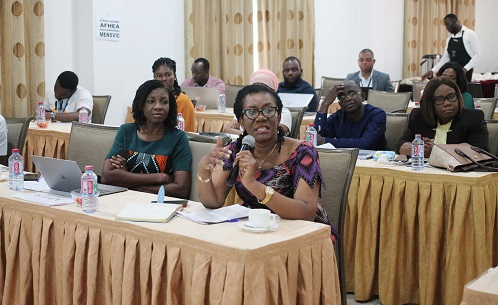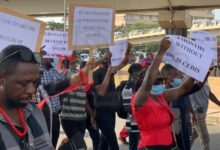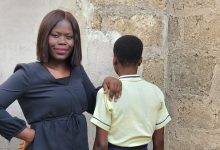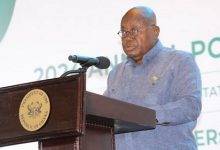
Inadequate funding has often stalled progress and derailed efforts at promoting Adolescent and Sexual Reproductive Health Rights (ASRH), according to a project review.
This came to light at a validation meeting on the costing of in-country interventions on Adolescent and Sexual Reproductive Health Rights (ASRH) held in Accra on Tuesday.
It was organised by the African Health Economics and Policy Association (AFHEA), a professional body of health economists and policy makers in Africa, with funding from the International Development Research Centre (IDRC).
The meeting reviewed the three-year project titled; “Economics of Adolescent Sexual and Reproductive Health Interventions (EcASARH), Ghana.”
The multi-country project, being implemented in Ghana and Senegal, seeks to identify priority ASRH interventions and the gaps therein to allow for effective implementation to reduce teenage pregnancies and promote adolescent sexual reproductive health rights in the country.
In attendance were stakeholders drawn from the government, development partners, civil society and academia, among others.
Principal Investigator on the project, Dr Ama Pokuaa Fenny, in a remark, said in the last seven years, funding for ASRH had fluctuated across four key interventions; Empowering Adolescent Girls through Comprehensive Sexuality Education, Strengthened national capacity in delivering high-quality integrated family planning and comprehensive maternal health services, Safety Net Programme and E-Health (digital platforms).
“Between 2015 and 2021, cost estimates of the four priority interventions show that funding for ASRH fluctuates.This point’s unsteadiness in the funding of ASRH activities in the country perhaps reflecting the fact that ASRH funding in Ghana is highly donor dependent,” she noted.
However, Dr Fennysaid an area that had received considerable funding over the years was building national capacity in ASRH.
She said the EcASARH project provides an innovative way to collate data for the cost of ASHR interventions to build effective coordination and synchronisation moving forward.
“We may also need to have a separate budget line for ASHR interventions so that agencies draw from it and we can track. We need to close the resource gap and we can start from here,” she proposed.
The Programmes Officer, Technical and Adolescent Health Communication of the Ghana Health Service, Sherifa Mohammed, outlined challenges militating against ASHR interventions in the country.
She enumerated them as insufficient funding for nationwide scale-up of activities (the few being donor driven and focused), as well as society’s reluctance to discuss ASRH dispassionately, lack of data on 10 to 14- year-olds in population-based surveys and piecemeal, inadequate intensity and unsustained delivery of ASHR interventions.
She called for the establishment of a resource mobilisation plan for ASHR, especially for interventions targeted at young girls, adding that “we need to improve coordination and collaboration across all levels of implementation.”
The Acting Operations Director of AFHEA, Elizabeth Adote, said Ghana and for that matter Africa, had a growing youthful population in Africa, hence the need for effective costing and delivery system of ASHR interventions to spur socio-economic development.
Data from the GHS’s District Health Information Management Health System (DHIMS) showed that between 2016 and 2020, about 555,575 teenagers aged 10 to 19 years got pregnant.
On the average, a little over 112,800 teenagers get pregnant in Ghana annually.
BY ABIGAIL ANNOH







